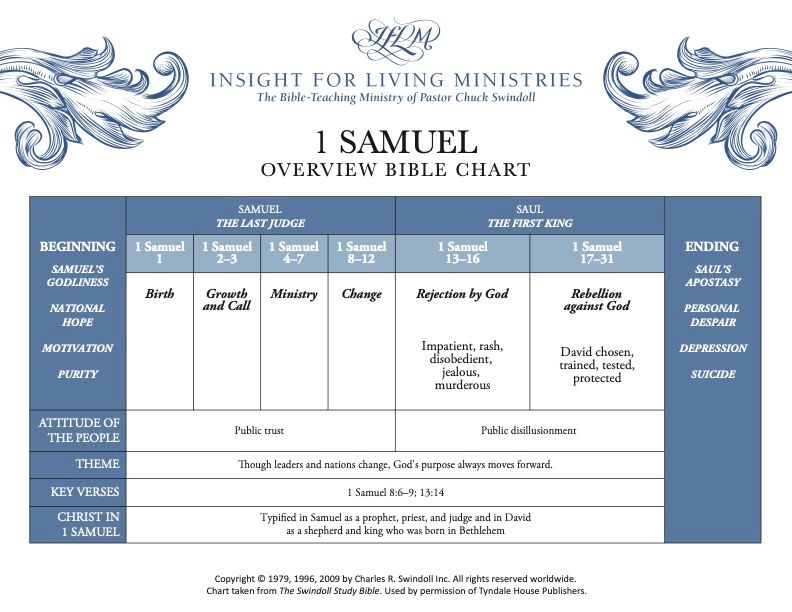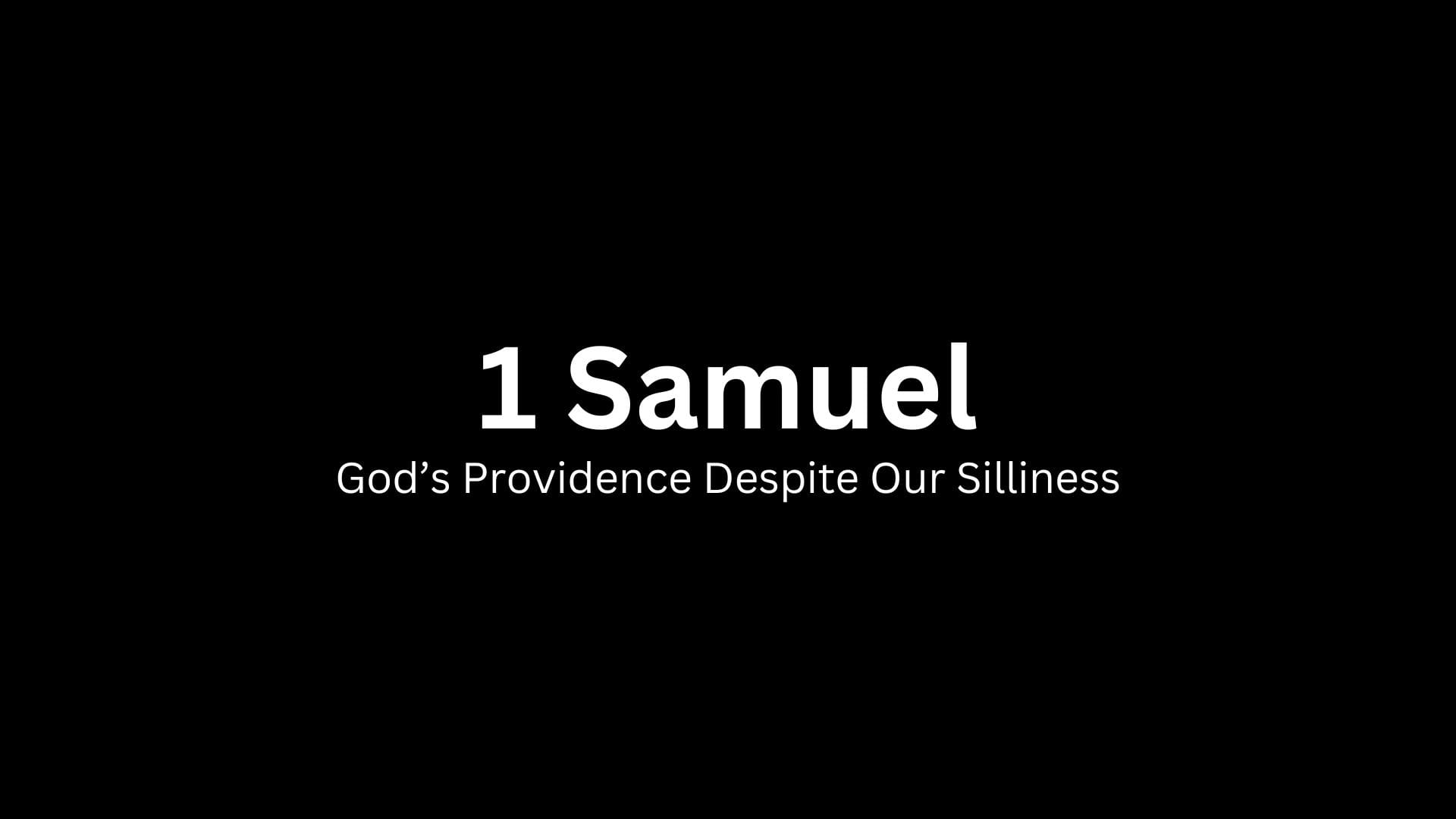
Like a good detective, let's examine this book.
🔥 Overview
The book of 1 Samuel is the first part of one big book. Originally, Samuel was one big and still is in the Hebrew Bible. When the Hebrew Bible was translated into its Greek form (Septuigant), the book was divided into two parts. The Samuels tell of the nation of Israel. It spans from the end of the time of the Judges to the Exile.
🔍 Things to Notice
- As stated above, 1 and 2 Samuel was originally one big book.
- 1 and 2 Samuel and 1 and 2 Kings go together. They paint the picture of a nation beginning well but eventually falling to idolatry.
- We meet the final Judge, Samuel.
🙏 Jesus in this Book
(Every book reveals the glory of God, displayed in Christ Jesus)
- Jesus is our True King.
👀 Themes
- Faithfulness.
- Kingship.
- Obedience.
- Judgment.
- God's Providence.
- God is working behind the scenes.
😀 Who?
Who wrote it: Samuel possibly wrote the first section. It was likely finished by the Prophet Nathan and the Historian Gad.
Who is the original audience: The nation of Israel.
🪧 Where?
Where are we: All events in Israel.
⏳ When?
When was it written: 1120BC-1011BC. The events took place over the course of 110 years. From the closing of the book of judges through the death of Saul. . It was written approximately 900 BC. This likely was not fully compiled until after the death of Solomon, David’s Son. Someone was likely not writing things done in this book as they happened.
🤔 What?
What is the big idea: The events written about are when the nation of Israel forms into a kingdom. It chronicles the rise of the Davidic dynasty and its constant struggle to follow God.
🧐 Why?
Why is this book important: The book of Samuel was written as the nation of Israel was being conquered and carried off into Exile. This book is a harsh critique to answer the question, "How did this exile happen?" and "What led us to this place?" Sometimes we look at our difficult situations and ask why all this madness. The nation of Israel knew precisely why. They had left God. This book reminds us to look behind us. Have we left God in search of our own glory and kingdoms?
📝 How?
How can I apply it?: There are three ways (among countless others) that Samuel can form our lives and thinking. First, realize God is always working behind the scenes for His purpose. Second, our role is to do our best and be obediently faithful to do all He has called us to do. Finally, we must be careful not to think we know better than God and turn our back on Him. Consequences always follow. We need His guidances.


